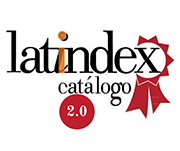The impact of virtual leadership in the organizational performance in the manufacturing industry of Ciudad Juarez post Covid
DOI:
https://doi.org/10.20983/novarua.2025.30.2Keywords:
Virtual leadership, Organizational performance, Manufacturing industry, Remote work, Vitual teamsAbstract
This research evaluated the impact of virtual leadership on organizational performance in the manufacturing industry in Ciudad Juarez, Mexico. After more than 60 years’ operating in a face-to-face model, we analyzed how leaders and teams face the transition to virtuality. Qualitative research was conducted using Atlas.ti software, and data from in-depth interviews with managers were analyzed. The findings show the leaders faced greater difficulties of adaptation, as they were not prepared to manage their activities remotely, which required a prolonged process of adjustment. The industry and its employees made significant investments to implement remote work, ensuring adequate technological resources and making changes in organizational structure to improve efficiency. These measures were essential to facilitate successful transition and maintain productivity in the new virtual work environment.
References
Alhebsi, R., Wadi, R., Al-Hajji, M., y Sakhrieh, A. (2021). Virtual Leadership as a New Influential Concept. Indian Journal of Economics and Business, 20(2), 417-427. https://www.ashwinanokha.com/resources/ijeb%20v20-2-28.%20ijeb.pdf.
Ardila, W., Bautista, D., y Martínez, F. (2019). La virtualidad como generadora de valor para las organizaciones. Ediciones Universidad Central, 1-20. https://www.ucentral.edu.co/sites/default/files/inline-files/WP01Virtualidad_zapata_Web.pdf.
Avolio, B. J., Kahai, S., y Dodge, G. E. (2000). E-leadership: Implications for theory, research, and practice. The leadership quarterly, 11(4), 615-668. https://doi.org/10.1016/S1048-9843(00)00062-X.
Ayala, C. (2021). Responsabilidad Social Corporativa: Concepto, Ámbito De Aplicación, Grupos De Interés y Objetivos. Anuario Jurídico y Económico Escurialense, 54, 173-198. https://doi.org/10.54571/ajee.462.
Bagga, S. K., Gera, S., y Haque, S. N. (2022). The mediating role of organizational culture : Transformational leadership and change management in virtual teams. Asia Pacific Management Review, 28(2), 120-131. https://doi.org/10.1016/j.apmrv.2022.07.003.
Barradas, M., Rodríguez, J., y Espinoza, I. (2021). Desempeño organizacional. Una revisión teórica de sus dimensiones y forma de medición. RECAI Revista de Estudios En Contaduría Administración e Informática, 10(28), 21-40. https://www.redalyc.org/journal/6379/637968301002/637968301002.pdf.
Bertolli, M. P., Roark, G. Y., Urrutia, S. B., y Chiodi, F. J. (2017). Revisión de modelos de madurez en la medición del desempeño. Inge Cuc, 13(1), 70-83. https://doi.org/10.17981/ingecuc.13.1.2017.07.
Braun, V., y Clarke, V. (2021). To saturate or not to saturate? Questioning data saturation as a useful concept for thematic analysis and sample-size rationales. Qualitative Research in Sport, Exercise and Health, 13(2), 201-216. https://doi.org/10.1080/2159676X.2019.1704846.
Carretero, H., y Pérez, C. (2005). Normas para el desarrollo y revisión de estudios instrumentales. International Journal of Clinical and Health Psychology, 5(3), 521-551. https://www.redalyc.org/pdf/337/33705307.pdf.
Castro, M. (2021). Liderazgo, comunicación organizacional y motivación de los trabajadores en la industria maquiladora de Nogales, Sonora. Sintaxis, 1(6), 210-222. https://doi.org/10.36105/stx.2021n6.09.
Çetin, Ö., Sossa, R., y Pinto, A. (2017). Tendiencias Administrativas: El empoderamiento en las empresas. Econografos, 17, 1-20. http://www.fce.unal.edu.co/centro-editorial/documentos/econografos-eacp/1644-17-tendencias-administrativas-el-empoderamiento-en-las-empresas.html.
Contreras, M., Páramo, D., y Rojano, Y. (2020). The grounded theory as a theoretical construction methodology. Revista Científica Pensamiento y Gestión, 47, 283-306. https://doi.org/10.14482/pege.47.9147.
Contreras, Ó. F., y Munguía, L. F. (2016). Evolución de las maquiladoras en México: Política industrial y aprendizaje tecnológico. Región y Sociedad, 19, 71-87. https://doi.org/10.22198/rys.2007.0.a566.
Cordova, F., Aguirre, P., Garcia, M. G., y Martinez, D. C. (2022). Virtual leadership as a development opportunity in business context. Problems and Perspectives in Management, 20(2). https://doi.org/10.21511/ppm.20(2).2022.20.
Cravino, L. M. (2015). Evolución histórica del concepto de Gestión del Desempeño. Revista de Ciencias Empresariales, 16(1), 5-14. https://doi.org/10.37767/2468-9785(2015)001.
Creswell, J. (2014). Research design Auqlitative, Quantitative, and Mixed Methods Approaches (4th ed.). SAGE Publications.
Daft, R. (2011). Teoría y diseño organizacional. CENAGE Learning. https://cucjonline.com/biblioteca/files/original/a470398d881ef04626b994461fc4879b.pdf.
Delgado, M., y Di Antonio, A. (2010). La motivación laboral y su incidencia en el desempeño organizacional: un estudio de caso. Universidad Central de Venezuela. http://hdl.handle.net/10872/3527.
DeSanctis, G., y Poole, M. S. (1994). Capturing the complexity in advanced technology use: Adaptive structuration theory. Organization science, 5(2), 121-147. https://doi.org/10.1287/orsc.5.2.121.
Dulebohn, J. H., y Hoch, J. E. (2017). Virtual teams in organizations. Human Resource Management Review, 27(4), 569-574. https://doi.org/10.1016/j.hrmr.2016.12.004.
Efimov, I., Harth, V., y Mache, S. (2020). Health‐oriented self‐ and employee leadership in virtual teams: A qualitative study with virtual leaders. International Journal of Environmental Research and Public Health, 17(18), 1-19. https://doi.org/10.3390/ijerph17186519.
Flavián, C., Guinalíu, M., y Jordán, P. (2022). Virtual teams are here to stay: How personality traits, virtuality and leader gender impact trust in the leader and team commitment. European Research on Management and Business Economics, 28(2). https://doi.org/10.1016/j.iedeen.2021.100193.
Ford, R. C., Piccolo, R. F., y Ford, L. R. (2017). Strategies for building effective virtual teams: Trust is key. Business Horizons, 60(1), 25-34. https://doi.org/10.1016/j.bushor.2016.08.009.
Galván, O., y García, J. (2018). Análisis del desarrollo histórico de la industria maquiladora de exportación en México: caso de Ciudad Juárez, Chihuahua. Revista Doxa Digital, 8(15), 135-152. https://doi.org/10.52191/rdojs.2018.74.
Gazor, H. (2012). A Literature Review on Challenges of Virtual Team’s Leadership. Journal of Sociological Research, 3(2), 134-145. https://doi.org/10.5296/jsr.v3i2.2247.
Gentilin, M., y García, M. (2022). Virtual Leadership : Key Factors for Its Analysis and. Management Revue, 32(4), 343-365. https://doi.org/10.5771/0935-9915-2021-4-343.
Guest, G., Bunce, A., y Johnson, L. (2006). How Many Interviews Are Enough?: An Experiment with Data Saturation and Variability. Field Methods, 18(1), 59-82. https://doi.org/10.1177/1525822X05279903.
Hebert, D. M., y Lovett, M. (2021). Elements for Academic Leadership in a Virtual Space. Journal of Higher Education Policy And Leadership Studies, 2, 180-187. https://doi.org/10.52547/johepal.2.3.180.
Hernández, C. (2020). La confianza organizacional vista desde la perspectiva de los sistemas complejos adaptativos. Administración y Organizaciones, 23(44), 55-72. https://doi.org/10.24275//uam/xoc/dcsh/rayo/2020v23n44/Hernandez.
Hernández, R. (2014). La Investigación Cualitativa a Través De Entrevistas: Su Análisis Mediante La Teoría Fundamentada. Cuestiones Pedagógicas, 23, 187-210. https://revistascientificas.us.es/index.php/Cuestiones-Pedagogicas/article/view/9815.
Hernández, R., y Mendoza, C. (2018). Las rutas Cuantitativa Cualitativa y Mixta. McGraw Hill Education.
Ineza, L., Bechtold, K., Mwisongo, A., Kwedi Nolna, S., y Linnander, E. L. (2022). Building leadership and management competencies of national immunization teams in 16 Gavi-eligible countries through the EPI leadership and management programme. Vaccine, 40(26), 3581-3587. https://doi.org/10.1016/j.vaccine.2022.04.070.
Johnson, K. (2008). Virtual Leadership: Required Competencies for Effective Leaders. Communication, 39-52. http://www.ilr.cornell.edu/cahrs/research/whitepapers/upload/Spring10Mtng_VirtualLeadership.pdf.
Katz, R. L. (1974). Habilidades de un administrador eficaz. Harvard Business Review (September). http://search.ebscohost.com/login.aspx?direct=true&db=bth&AN=6774557&site=ehost-live%5Cnhttp://web.ebscohost.com/ehost/pdf?vid=2&hid=3&sid=a6b4b872-3fd8-402f-af88-49b239266bfb@sessionmgr12.
Kilian, D. A. (2016). Identifying Intercultural, Language and Technical Competences Necessary for Effective Communication in Global Virtual Teams. University of Leicester. https://d1wqtxts1xzle7.cloudfront.net/53731177/Effective_Communication_in_Global_Virtual_Teams_2016-libre.pdf?1498996704=&response-content-disposition=inline%3B+filename%3DMA_Applied_Linguistics_and_TESOL_Dissert.pdf&Expires=1748929110&Signature=MtpEZaLK~cHI4S9kj1wXhVaiwq~ulU7aJugaypJI2mwCmx~L4IIl9TBPV8dcHgGxQD-1GEt29YsBKq9FWlbncTLqmNf7zg6kXsJ5T-wk6Tn1QS0Q1LRiusaeymzPC9Wbojgt81URiNZeFiCVXxHdbKv5La2Q8X4xnUJ9s0ktBotkldFhfFtvhT~oLv2x2Fxf8IkXEHrJx2WWxUc59Lcf-i~bWaCyx6ltHMr8~LJDWMQeTTHiBH3RYk2AKHxwzzi8SP70wF5QbsCsrfi8E5dB2pTU3sfHoFxzCAKefJW4WC4dpgQaaQBgaJUyNKEOePEADDaiFWlj8MA8OvZQPaSj~w__&Key-Pair-Id=APKAJLOHF5GGSLRBV4ZA.
Kozlowski, S. W. J. (2018). Enhancing the Effectiveness of Work Groups and Teams: A Reflection. Perspectives on Psychological Science, 13(2), 205-212. https://doi.org/10.1177/1745691617697078.
Larrosa, J., Cruz, G., y Savay, S. (2020). Las tendencias de la organización empresarial. Revista de Investigación Formativa: Innovación y Aplicaciones Técnico-Tecnológicas, 2(1), 56-63. http://ojs.formacion.edu.ec/index.php/rei/article/view/v2.n1.a7.
Lederman, D. (2007). Natural resources: neither curse nor destiny. Choice Reviews Online, 44(09). https://doi.org/10.5860/choice.44-5161.
López, M., Arias, L., y Rave, S. (2006). Las Organizaciones y La Evolucion Administrativa. Scientia Et Technica, 2(31), 147-151. https://revistas.utp.edu.co/index.php/revistaciencia/article/view/6409.
Maduka, N. S., Edwards, H., Greenwood, D., Osborne, A., y Babatunde, S. O. (2018). Analysis of competencies for effective virtual team leadership in building successful organisations. University Library, 25(2), 696-712. https://doi.org/10.1108/BIJ-08-2016-0124.
Martínez, R., Vera, M., y Vera, J. (2019). Innovación y desempeño organizacional en la industria automotriz de puebla, México. Revista Internacional Administración y finanzas, 12(2).
Maynez, A., Vargas, M., Gómez, K., Martínez, E., y Hernández, J. (2021). El impacto del liderazgo ético en los conflictos laborales dentro de la Industria Manufacturera de Exportación. Reporte técnico. http://cathi.uacj.mx/20.500.11961/22017.
Murphy, K., Cleveland, J., y Hanscom, M. (2019). Performance Appraisal and Management. SAGE Publications Inc. https://doi.org/org/10.4135/9781506352886.
Muszynska, K. (2021). A bibliometric review of research on communication in virtual project teams. Procedia Computer Science, 192, 4770-4779. https://doi.org/10.1016/j.procs.2021.09.255.
Ñaupas, H., Mejía, E., Novoa, E., y Villagómez, A. (2014). Metodología de la investigación: Cuantitativa - Cualitativa y Redacción de la Tesis (14th ed.). McGraw Hill.
Navia, F., Mayorga, D., Campi, I., y De Lucas, L. (2019). Liderazgo: una habilidad gerencial fundamental en el éxito de una empresa en el siglo XXI. Recimundo, 3(3), 1061-1084. https://doi.org/10.26820/recimundo/3.(3).septiembre.2019.1061-1084.
Oliveira, A., y Guerra, R. (2008). Investigação sobre medição de desempenho empresarial nas empresas produtoras de melão do pólo frutícola Mossoró / Baraúna . Costos e agronegocio, 4(2), 117-137.
Omar, J. (2007). Teoría De La Administración: Un Campo Fragmentado Y Multifacético. Revista Científica “Visión de Futuro,” 7(1). https://hdl.handle.net/20.500.12219/4897.
Omondi, C. (2015). Measuring Organization Performance From Balanced Scorecard to Balanced ESG Framework. International Journal of Economics, Commerce and Management United Kingdom, III(11), 715-725. https://d1wqtxts1xzle7.cloudfront.net/93101596/31148-libre.pdf?1666808531=&response-content-disposition=inline%3B+filename%3DMeasuring_Organization_Performance_from.pdf&Expires=1748929621&Signature=ewoNkFS6QkLdOEfLcGfiNG8UK-hJY5hlI~0J4h-Lx7h6ke4AAkx1oRPjin0jmOJ8QPxGV7l~QmjnN-zTPgkvUFurEZFjGxkdvYdtIrguqLoBisNr000yQapyejekgZMYFde4o~KlFwJGqYroFSRQ4ZRvoTA6P6Yqzp83m47DvdG3fuTKSDOPAIrpgjCpXSQgVzZpHh50SdnOZc4r1lK-s1yz8hyhuPtwI0LWgWJwrtEFUmmfbc1RGqg29XFak5WvGCV6NryCuJ~ZzxNohZpnSYSRY5ysAC7eswMDGXDGABrM4q1-aq5-2vuwebYWehQCdc6fGepgSyHmaTPA8N-z6Q__&Key-Pair-Id=APKAJLOHF5GGSLRBV4ZA.
Petronio, S., y Child, J. (2020). Conceptualizacion and Operationalization: Utility od Communication Privacy Managemeny Theory. Current Opinion in Psychology, 31, 76-82. https://doi.org/10.1016/j.copsyc.2019.08.009.
Purvanova, R. K., y Bono, J. E. (2009). Transformational leadership in context: Face-to-face and virtual teams. Leadership Quarterly, 20(3), 343-357. https://doi.org/10.1016/j.leaqua.2009.03.004.
Roman, A., Van Wart, M., Wang, X. H., Liu, C., Kim, S., y McCarthy, A. (2019). Defining E-leadership as Competence in ICT-Mediated Communications: An Exploratory Assessment. Public Administration Review, 79(6), 853-866. https://doi.org/10.1111/puar.12980.
Ruben, B. D., y Gigliotti, R. A. (2017). Communication: Sine Qua Non of Organizational Leadership Theory and Practice. International Journal of Business Communication, 54(1), 12-30. https://doi.org/10.1177/2329488416675447.
Samartinho, J., Faria, J., y Silva, P. R. (2015). Model for the perception of the specific eLeadership skills and features in learning managment systems environments. Revista Da UIIPS, 3(1), 105-133. https://doi.org/10.25746/ruiips.v3.i1.14345.
Sánchez, M. (2018). Origen y evolución de internet y su desarrollo como entorno de interacción social a través de los medios sociales digitales. Revista Contribuciones a Las Ciencias Sociales, March. https://www.eumed.net/rev/cccss/2018/03/medios-sociales-digitales.html
Schildkamp, K. (2019). Data-based decision-making for school improvement: Research insights and gaps. Educational Research, 61(3), 257-273. https://doi.org/10.1080/00131881.2019.1625716.
Schilling, E. (2011). Gestión tecnológica en la empresa: definición de sus objetivos fundamentales. Revista de Ciencias Sociales, XVII, 156-166. https://www.redalyc.org/pdf/280/28022755013.pdf.
Singh, S., y Gupta, V. (2019). Organizational Performance Research in India A review and future research agenda. En Misra, G., The Sixth Indian Council for Social Science Research (ICSSR) Survey of Psychology in India. https://doi.org/10.1093/oso/9780199498864.003.0001.
Solís, F., y Mendoza, U. (2022). Experiencias del trabajo industrial en la modalidad home office en Ciudad Juárez, México. FACE Facultad de Ciencias Económicas y Empresariales, 22(3), 172-183. https://cathi.uacj.mx/bitstream/handle/20.500.11961/22446/Experiencias%20del%20trabajo%20industrial%20en%20home%20office.pdf?sequence=1&isAllowed=y.
Valles, M. S. (2002). Cuadernos Metodológicos-Entrevistas Cualitativas (Vol. 32). Centro de investigaciones Sociológicas.
Van Mart, M. (2015). Dynamics of Leadership in Public Service Theory and Practice Routledge. https://doi.org/10.7560/709836-021.
Van Wart, M., Roman, A., Wang, X., y Liu, C. (2019). Operationalizing the definition of e-leadership: identifying the elements of e-leadership. International Review of Administrative Sciences, 85(1), 80-97. https://doi.org/10.1177/0020852316681446.
Vives, T., y Hamui, L. (2021). La codificación y categorización en la teoría fundamentada , un método para el análisis de los datos cualitativos. Investigación en educación médica, 10(40), 97-104. https://www.medigraphic.com/cgi-bin/new/resumen.cgi?IDARTICULO=102345.
Witzel, A. (2000). The Problem-Centered Interview 2 . The Basic Ideas of Problem-Centered Interviews. Forum Qualitive Social Research, 1(1), 1-9.
Zeuge, A., Weigel, A., Bjorn, N., Frederike, O., & Michael, S. (2020). Leading Virtual Teams-A Literature Review Leading Virtual Teams–A Literature Review.
Zuzama, J. (2016). Liderazgo: estilos de liderazgo según Kurt Lewin y análisis de un caso real. Uiversitat de Les Illes Balears, 15, 35. http://dspace.uib.es/xmlui/handle/11201/3638.
Downloads
Published
Issue
Section
License
Copyright (c) 2025 Jorge Salvador Lares, Luis Daniel Azpeitia Herrera, Ulises Mendoza Arvizo

This work is licensed under a Creative Commons Attribution-NonCommercial-ShareAlike 4.0 International License.
All contents of the electronic edition of the journal are distributed under a license and distribution "Creative Commons Attribution-Noncommercial-ShareAlike 4.0 International" (CC-BY-NC-SA). You can see from here the informative version of the license.
Those authors/publications as having this journal agree to the following terms:
a) Is allowed and recommends authors / as disseminate their work via the Internet (p. eg .: institutional telematic files or on their website), which can produce interesting exchanges and increase appointments of the published work. (See The Effect of Open Access).












